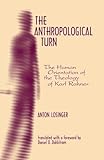The Anthropological Turn : The Human Orientation of Karl Rahner / Anton Losinger.
Material type: TextSeries: Moral Philosophy and Moral TheologyPublisher: New York, NY : Fordham University Press, [2021]Copyright date: ©2000Description: 1 online resource (112 p.)Content type:
TextSeries: Moral Philosophy and Moral TheologyPublisher: New York, NY : Fordham University Press, [2021]Copyright date: ©2000Description: 1 online resource (112 p.)Content type: - 9780823220670
- 9780823296743
- online - DeGruyter
| Item type | Current library | Call number | URL | Status | Notes | Barcode | |
|---|---|---|---|---|---|---|---|
 eBook
eBook
|
Biblioteca "Angelicum" Pont. Univ. S.Tommaso d'Aquino Nuvola online | online - DeGruyter (Browse shelf(Opens below)) | Online access | Not for loan (Accesso limitato) | Accesso per gli utenti autorizzati / Access for authorized users | (dgr)9780823296743 |
Frontmatter -- CONTENTS -- Translator's Foreword -- Foreword to the Second Edition -- Foreword -- Preliminary Remarks: The Anthropological Point of Departure in the Theology of Karl Rahner -- Introduction -- 1. The "Anthropological Turn" in the Theology of Karl Rahner -- 2. The Content of the Starting Point: Theology as Anthropology -- 3. The Formal-Methodical Starting Point: Theology as Transcendental Reflection -- Excursus: On the Relation of Philosophy and Theology against the Backdrop of "Transcendental Revelation" -- Postscript: Is Transcendental Anthropology the Adequate Form for Contemporary Theology? -- Bibliography -- Index of Names Cited
restricted access online access with authorization star
http://purl.org/coar/access_right/c_16ec
The form and content of the study of theology in the present, modern epoch are marked by a vast quantity and variety of the most diverse and, in part, the most divergent points of departure. The classical unity and perspicuity of the world of theological thought, so typical in earlier centuries, has dissolved with the plurality of the horizons and problems of modern thinking. The reality of the world, science, and theology appears no longer as a single “orbis,” but rather as an open and unbounded space. Indeed, precisely for the study of theology in modern universities, the catchphrase, the “new vastness,” thus appears to hold as well. This book is intended to provide Christians and theologians with an access to Karl Rahner to unpack his thinking and to make a theological inspection of his work possible. In this respect it is essential to locate the central point of departure for the theology of Karl Rahner in the concerns and questions of human beings and, to take a cue from the key concept of the “anthropological point of departure,” to make understandable the underlying tendency of Rahner’s work. Mastering scientific inquiries in the everyday praxis of contemporary theological studies of necessity often takes the unsatisfactory form of a compilation of various essays, articles, and contributions to handbooks. Precisely for this reason, immersing oneself in the work of an epochally significant author, in the world of his thoughts, and in his theological profile—as here in the case of the theology of Karl Rahner—ought to be, not only a dutiful exercise, but a delightful change of pace, perhaps even a passion: studium in the proper sense of the word.
Mode of access: Internet via World Wide Web.
In English.
Description based on online resource; title from PDF title page (publisher's Web site, viewed 03. Jan 2023)


